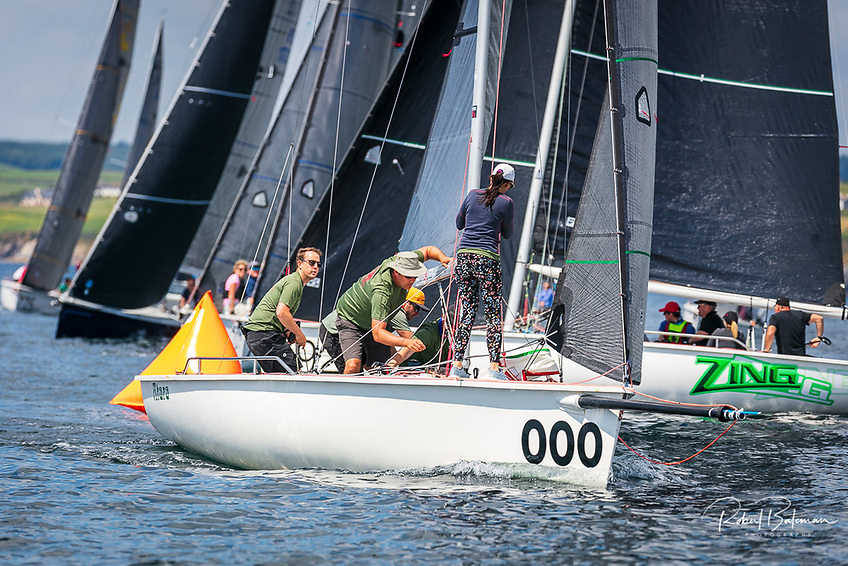Displaying items by tag: Angelshark
SFPA Issue Public Reminder about Angelshark Protection
The Sea-Fisheries Protection Authority (SFPA) has issued a reminder to the public about a ban on catching angelsharks, after a sighting of the endangered species in Galway Bay.
“Angelsharks (Squatina squatina) are among Ireland’s rarest native (as opposed to migrant) fish,”the SFPA said in a statement.
“They are critically endangered worldwide. They have been reduced to a couple of areas in Irish waters – Tralee Bay being the most notable. Only between one and a few are seen in Irish waters in any year,”it said.
Film footage of an angelshark was recorded by two kayaking instructors Ronan Breathnach and Colm O’Loan off Rinville in south Galway Bay last weekend.
 The Angelshark (squatina squatina)
The Angelshark (squatina squatina)
The Marine Institute, which confirmed the sighting, described it as “ a great day out for the group of 12 budding marine scientists of the future”
The SFPA says it wishes to remind the public that angelsharks are a “prohibited species” for all EU and third-country vessels.
“Any commercial fisher who encounters them must release them safely back into the sea as soon as possible, and they are strongly encouraged to record them as bycatch in their logsheet,”it said.
“Some commercial vessels have tagged them over the past decade. These details help with the assessment of the angelshark populations,” the SFPA added.
Fishermen, coastal farmers, walkers and “passionate individuals” are being asked to report new sightings or past records of the angelshark as part of a national research project which marine scientist Louise Overy recently spoke to Wavelengths about.
The aim is to develop an action plan which supports their recovery for future generations – a “community-led recovery”, Overy said in her interview here
Rare Angelshark Encounter Is a Treat for Galway Kayakers
A group of young kayakers in Galway were treated to a scarce sight at the weekend when an angelshark surprised them for a brief swim-around.
Kayaking instructors Ronan Breathnach and Colm O’Loan from Galway Bay Sailing Club had the presence of mind to dip their camera into the water and capture footage of this rarely encountered fish in the waters off Rinville on Sunday (28 May).
“What a great day out for the group of 12 budding marine scientists of the future,” said the Marine Institute, who confirmed the sighting of one of the critically endangered marine wildlife species which is also one of the rarest sharks in Europe.
Angelsharks were once abundant over large areas of the Northeast Atlantic but pressure from commercial fishing—particularly bottom trawling—has been blamed for a significant decline in their numbers over the last century.
“Jaws” it ain’t – the Angelshark has more in common with the skate and ray but is now an endangered species.
The squat flat shark, appropriately named Squatina squatina, once lived in abundance on sandy and muddy seabed areas on the Irish coastline but is now confined to Tralee Bay, Co Kerry.
As Afloat reported previously, the critically endangered species is the focus of a research appeal.
Fishermen, coastal farmers, walkers and “passionate individuals” are being asked to report new sightings or past records of the Angelshark as part of a national research project which marine scientist Louise Overy spoke to Wavelengths about.
The aim is to develop an action plan which supports their recovery for future generations – a “community-led recovery”, Overy says.
A website is currently being developed, www.angelsharkproject.com and the Irish Elasmobranch Group can also be contacted on Facebook or by email at [email protected]
Critically Endangered Angelshark Focus of Research Appeal
Fiddle-fish, Banjofish and Devilfish are all names given to a species of shark native to Ireland which is now as endangered as the Giant panda or Bengal tiger.
The Angelshark once lived in abundance on sandy and muddy seabed areas on the Irish coastline but is now confined to Tralee Bay, Co Kerry, while the Canary islands are one of their last “strongholds” in Europe.
Now fishers, coastal farmers, walkers and “passionate individuals” are being asked to report new sightings or report past records of the Angelshark - also known locally as monkfish and bearing the Latin name Squatina squatina - as part of a national research project.
Marine scientists Louise Overy and Dr Kevin Flannery of Mara Beo in Dingle, Co Kerry, explain that Irish waters are “home to a vast and incredible array” of marine life, including 80 different species of the elasmobranch sub-class of fish - sharks, skates and rays.
 Marine scientist Louise Overy who is leading the Angelshark research project
Marine scientist Louise Overy who is leading the Angelshark research project
One-third are considered at risk of extinction, and the Angelshark is regarded as “critically endangered”.
The Angel Shark Project: Ireland is led by the Irish Elasmobranch Group, and is being run in partnership with Natural Resources Wales, Zoological Society of London, Leibniz Institute for the Analysis of Biodiversity Change and Universidad de Las Palmas de Gran Canaria.
Inland Fisheries Ireland, University College Dublin, the Sea Fisheries Protection Authority, the National Parks and Wildlife Service, the Marine Institute and Mara Beo are also collaborating.
The project has been supported by the Shark Conservation Fund, Overy says.
Using historic records, the group hopes to identify important areas for Angelsharks across Ireland and gather vital information on their ecology and life history.
The aim is to develop an action plan which supports their recovery for future generations – a “community-led recovery”, Overy says.
A website is currently being developed, www.angelsharkproject.com, and the Irish Elasmobranch Group can also be contacted on Facebook or by email at angelsharksireland@gmail.




























































